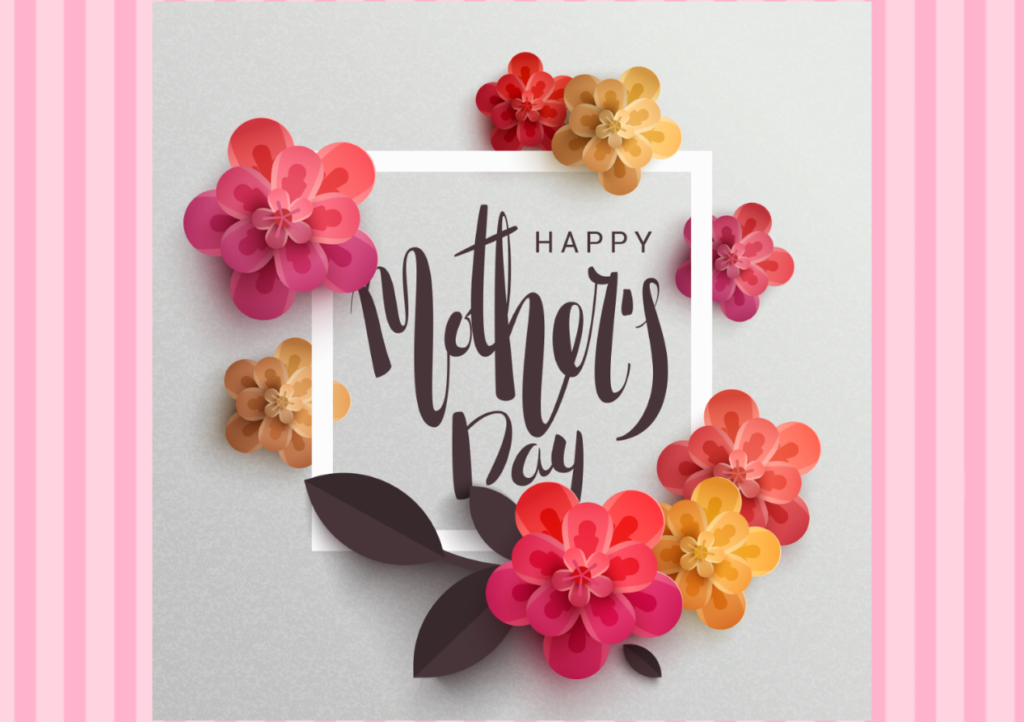Mothers of Mother’s Day – Julia Ward Howe and Anna Jarvis

Happy Mother’s Day! Feliz Dia de las Madres! Furaha Ya Mama Siku! It doesn’t matter how you say it, the sentiment is the same: “Happy Mother’s Day, Mom, we love you. Thank you. You are the center of our family and for that, we are grateful!” Mother’s Day is a holiday celebrated annually, as a tribute to the mothers and mother-figures we cherish (both living and deceased). It is celebrated on various dates throughout the world: Mothers Day in USA, Mother’s Day in Brazil, Mothers Day in UK, Mothers Day in Australia, Mothers Day in Canada, Mother’s Day in India, Mothers Day in Ireland, Mothers Day in Mexico, Mothers Day in New Zealand, Mothers Day in South Africa (among other countries). And since we’re taking a moment to be completely transparent in our expression of love for Mom – let’s make it known that mothers are incredibly deserving of more than one public day of honor. While Mother’s Day traditions and customs vary, everyone understands the significance of honoring generations of women who give the most, but indubitably ask the least. We value the opportunity to honor mothers for all they do—in a fashion that shows just how much we care. But, as is true with most other things – Mother’s Day didn’t always exist; it has a rich origin that we are proud to share with you (trusting you will also share it with those you love).
The idea of celebrating Mother’s Day in the United States was first conceptualized by Julia Ward Howe (famous lyricist of “The Battle Hymn of the Republic”). In 1870, Julia Ward Howe wrote the “Mother’s Day Proclamation”, the result of distress she felt for (what was deemed) the unnecessary deaths of young men during the Civil War. Howe called upon mothers to come together, organize and protest the senseless acts of ‘Sons killing the sons of other Mothers’. Instead of war, she suggested the ‘unification’ of all soldiers for the sake of women (Mother’s Day), as a way of celebrating both peace and motherhood. She originally proposed converting July 4th into Mother’s Day – as a way to dedicate the nation’s anniversary of independence to peace. By 1873, eighteen North American cities actively observed the new Mother’s Day holiday; however, as the principal financier, Howe found it difficult to personally fund the holiday on a continual basis with little-to-no financial backing. As her ability to make contributions began to wane, many cities and states ceased observance of the holiday; leaving a brilliantly commendable idea with a threat of non-existence. The celebration of mothers began losing more and more momentum in the early 1900s – until a young woman named Anna Jarvis campaigned for the creation of an official “Mother’s Day” holiday with Congressional support.

Anna Jarvis – the daughter of Ann Jarvis, swore at her mother’s gravesite that she would dedicate a day to honor all mothers, both living and deceased. When Mrs. Jarvis died on May 5, 1905, young Anna was determined to honor her. She asked the minister at her church in West Virginia to give a sermon in her mother’s memory to set the stage for what would later impact the entire world. In 1907, Miss Anna Jarvis selected pink carnations as the symbol for ‘Mother’s Day’, due to her mother’s fondness for them, and began writing incessantly to congressmen – asking them to set aside a day to honor all mothers. In 1910, the governor of West Virginia agreed to proclaim the second Sunday in May as Mother’s Day. In 1914 the bill passed in Congress: signed by President Woodrow Wilson, to declare the second Sunday in May as Mother’s Day (establishing Mother’s Day as an official holiday in the U.S.).

In honor of this momentous holiday, we take the time to show just how much ‘unconditional love’ and ‘peace’ mean to us, by remembering the two women who made the ‘Mother’s Day’ celebration possible. Mother’s Day in the United States is currently the largest celebration of its kind in the world. It is currently observed in more than 150 countries. Variations of the celebration are carried out in Canada, Australia, Japan, and many European countries. Although the celebration boasts the offering of love, sacrifice, and peace, the TZelement MAG would be remiss if we did not mention Anna Jarvis’ fight to end the celebration (for what she estimated as good cause, in the wake of increased commercialization of what she held dear). Once the holiday became overwhelmingly commercial in nature (something she never intended), Anna fought to no avail to have the holiday abolished, as a way of preserving the legacy of mothers and the sacrifices they make for their family. According to the National Retail Federation, Mother’s Day 2019 is expected to generate a record $25 billion dollars in retail sales; which was anything but Anna’s or Julia’s original intention. Their goal was to simply maintain the essence of the holiday (in its purest form), void of monetary advancement and marketing.
Planned Gift Purchases for Mother’s Day 2019

Today’s commemoration of Mother’s Day (complete with astronomical retail profits) may bear considerably less resemblance to Howe’s or Jarvis’ original notion of recognition. However, considering the freedoms we share in the United States – we take part in celebrations to honor mothers – and one can only pray the founders would nod in approval. Through conversations about the origin of Mother’s Day, we in effect pay tribute to both their efforts to unite women as only love can, through an excerpt of Howe’s famed Proclamation –“As men have often forsaken the plow and the anvil at the summons of war, let women now leave all, that may be left of home for a great and earnest day of counsel. Let them meet first, as women, to bewail and commemorate the dead. Let them then solemnly take counsel with each other as to the means whereby the great human family can live in peace, each learning after his own time, the sacred impress, not of Caesar, but of God.” May each of us celebrate mother and mother-figures in a manner that pays a loving tribute to the MOTHERS of Mother’s Day, who’s vision for love and peace are not being carried out in vain.





